US Dismisses Reports About Its Plans For a Partial Deal With Iran
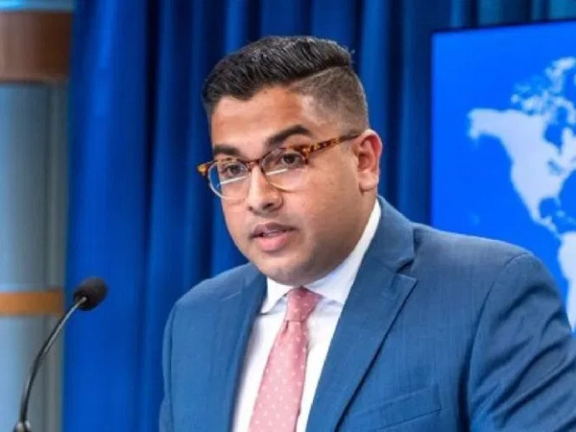
US State Department says reports about the administration planning a partial, interim nuclear deal with Iran are “rumors” that “tend to seldom be accurate.”

US State Department says reports about the administration planning a partial, interim nuclear deal with Iran are “rumors” that “tend to seldom be accurate.”
In response to a question on the issue by Iran International, State Department Deputy Spokesperson Vedant Patel also insisted that the President Joe Biden “has long said that he's committed to ensuring Iran never get to nuclear weapon, and we still believe diplomacy is the best way to achieve that goal. At the same time, we're preparing for all possible options and contingencies in coordination with our allies and partners.”
Axios reported on April 3 that according to multiple sources the administration shared a plan with allied governments to strike a partial deal with the Islamic Republic to freeze its uranium enrichment at 60 percent in exchange for some sanctions relief.
If true, Iran would gain the advantage of being a few months away from producing 90-percent enriched uranium needed for a nuclear weapon and enjoy the benefits of sanctions relief.
The Axios report also said that Israeli officials told the Biden team that Iran would be threading on dangerous ground that could lead to an Israeli military strike if it enriches above the 60-percent level.
However, spokesperson Patel said, “Rumors about nuclear diplomacy tend to seldom be accurate.” This is basically the same response given to Axios before it published its report, which does not categorically deny the report but tries to categorize it as a rumor that could be inaccurate.
Nearly 18 months of indirect talks with Iran to revive the 2015 nuclear accord, the JCPOA, reached a deadlock in September, and the administration since then has insisted that continuing the talks is not on its agenda.

As reports emerge that Washington is contemplating an interim agreement allowing Iran to enrich uranium to 60%, the Biden Administration is mostly silent.
Reports in Axios claim that a new proposal is being tabled which would offer Iran sanctions relief in exchange for a freeze on certain parts of the nuclear program.
The administration told Axios that it does not want to comment on "rumors" but reports of a plan for an interim deal have quoted several diplomats.
Iran has amassed 87.5 kilograms of 60% enriched uranium, according to an International Atomic Energy Agency report from late February. Experts say that if that uranium is enriched to 90% weapons grade, it would be a sufficient quantity to produce at least one nuclear bomb.
If the Biden team tries to gently return to the 2015 nuclear agreement, taken off the agenda last year over Iran's military assistance to Russia and Tehran's crackdown on anti-government protests, there are other risks ahead.
If sanctions are reduced in exchange for freezing Iran's enrichment at 60 percent, it will essentially recognize Tehran's right to hold on to fissile material that has no civilian use and can be only employed to make nuclear weapons. Under such a deal, Iran can change its mind in the future and quickly ditch the deal and dash towards a bomb in a few months, while having profited from sanctions relief.

The White House has failed to clearly deny the latest news, which suggests to many in Washington, that it is more a reality than a rumor.
An agreement on returning to the 2015 nuclear agreement was nearly reached last September, but Iran pulled out at the last minute after Western countries rejected its demand to shut down the International Atomic Energy Agency (IAEA) investigation into undeclared nuclear sites.
There is huge concern in the global community. Gabriel Noronha, the ex-State Department Iran advisor, said on Twitter: “This October, Iran can buy and sell ballistic missiles and long-range drones to any country (like Russia) *legally* under international law. The UN's asset freeze against 67 Iranian nuclear scientists and entities expires then too.
“In October 2025, all UN sanctions on Iran expire. The European Union pledged to end all its sanctions on Iran then as well. And what's worse, at that point, it will be next to impossible to ever put new ones back in place.”
The Iran threat remains high in Israel, Tehran's archenemy, which has told the US that with or without it, it will deal with the threat it poses. This week, Prime Minister Benjamin Netanyahu told its intelligence agency, Mossad, that Iran remains the threat of the generation.
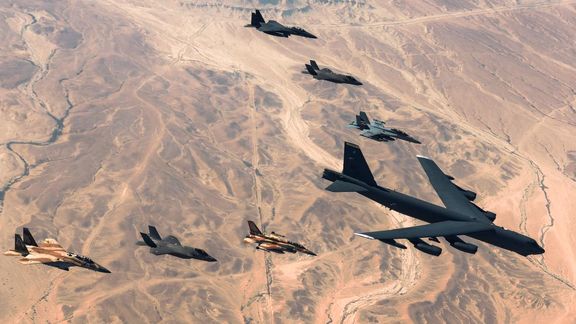
Israeli officials recently told the Biden administration and European officials that Iran risked a military strike if it enriches uranium above the 60% level, according to Axios.
At a gathering of intelligence staff this week, Netanyahu said: "In every generation there are those who rise up to destroy us and in this generation Iran has risen up to destroy us. If we do not prevent Iran from obtaining nuclear weapons, we will be in a different reality in which the entire world will be hostage to those who have inscribed on their flag their desire to destroy us; therefore, this is our supreme mission.”
Jason Brodsky, policy director at United Against A Nuclear Iran, said the US must find a new approach, the last two years among the administration’s biggest failings. Allowing it to have a 60% threshold will only embolden it further.
Writing for The Atlantic Council, he said: “Tehran has been emboldened to continue to test international red lines by the absence of nuclear deterrence. While the diplomatic door remained open for two years, the regime made its greatest advances. Between May 2018 and January 2021, when the Donald Trump administration was pursuing its maximum pressure policy, Iran only carefully, incrementally, and reversibly advanced its nuclear program beyond the JCPOA limits.”
He, as with others such as Noronho, calls on nations to enact the snapback mechanism, allowing nations to pull back the relief that ending the sanctions on Iran would bring.
“The United States and Europe urgently need a new Iran policy. And the way to begin would be for either Britain or France, as permanent members of the UN Security Council, to invoke the snapback sanctions mechanism under UN Security Council Resolution 2231.
“It would shatter the Iranian decision-making calculus, which begot escalation under the assumption that the United States and Europe would always remain at the negotiating table no matter what steps Tehran takes.”

A former Iranian diplomat says the implementation of the 2015 nuclear deal (JCPOA) is essential for the Islamic Republic's survival.
Nosratollah Tajik also said in his interview with reformist daily Etemad that the revival of the JCPOA has been almost forgotten as a result of miscalculations by Iran and the West.
Russia and China have taken advantage of the situation to strengthen their presence in the region, he argued, warning that Iran should not ignore the implications of this strategic development.
Referring to Iran's rapprochement with Saudi Arabia, Tajik noted that good regional relations will be helpful only if Iran has no problems in its international relations. In other words, good ties with neighbors are essential but not enough for Iran. The revival of the JCPOA can pave the way for Iran to leave behind its global isolation.

This comes while according to Tajik, the West sees the recent joint military exercise by Russia, China and Iran in regional waters as a manifestation of Tehran's pro-East policy and a challenge to the United States.
In another development, former government spokesman Ali Rabiei wrote in a commentary in Etemad that "Those who thought US sanctions would benefit Iran have now realized that sanctions cost Iranian lives and bring about breath-taking poverty to the country.
Many Iranian officials including Supreme Leader Ali Khamenei have claimed since the 2010s that sanctions have helped Iran to make indigenous progress, but they failed to present any evidence of economic success, while economists have maintained that the sanctions have led to Iran's worst crisis in modern history particularly by reducing oil exports and restricting international banking.
Meanwhile, Rabiei predicted that Iran's problems are likely to redouble in the current year as a result of the nationwide protests that have rocked the country in since September 2022. He further predicted that "what started last year is most likely to continue in the current year. He said, "Sometimes such events affect a whole generation by bringing to surface deep-rooted social, economic and political problems as well as Iran's fundamentalist cultural policies" that bring a modern nation face to face with the government.
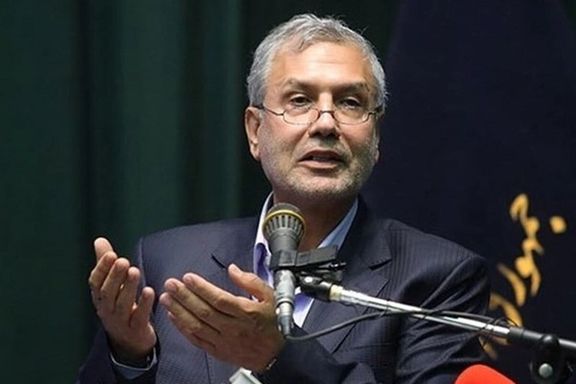
Likewise, he said that last year's protests have their roots in developments throughout 2020 and 2021, including elections that were not free and fair. Also, a pandemic that was not properly managed and US sanctions, that continued even after Donald Trump left the White House although the situation of sanctions has been slightly less difficult for Iran during Biden's presidency. However, the economic problems resulting from the sanctions created a state of despair that strengthened other destabilizing factors.
Despite these lessons, conservative daily Jomhouri Eslami wrote in an editorial on April 3 that Iran's ultraconservative President Ebrahim "Raisi is adamant to go ahead with his failed policies."
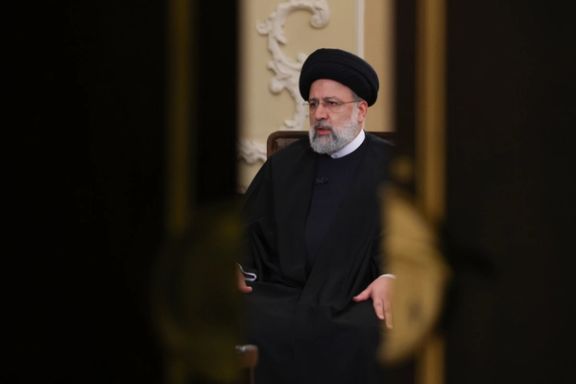
The daily wrote that rhetoric by senior officials during the first two weeks of the Iranian New Year that started on March 21 show that the government is not inclines to change counter-productive policies. The daily was referring in particular to Supreme Leader Ali Khamenei's position on hijab enforcement and other cultural issues in his New Year address, without naming him. The daily advised officials to see the people's lack of trust in the government, their daily protests in different forms and the number of those who leave the country to realize that “Iran is not feeling well.”
The editorial further suggested that the government should end the political game over the negotiations to revive the JCPOA and reconsider its approach to relations with the West to solve Iran’s serious economic crisis.

The Biden Administration has been entertaining the idea of a partial nuclear deal with Iran and has discussed it with allies, Axios reported on Monday.
According to a report by Barak Ravid, its correspondent in Israel, Axios said that according to ten Israeli and Western sources the administration shared the plan with allies.
In exchange for freezing Iran’s uranium enrichment at 60 percent the US would ease some sanctions. If true, Iran would gain the advantage of being a few months away from producing 90-percent enriched uranium needed for a nuclear weapon and enjoy the benefits of sanctions relief.
The report says that Israeli officials told the Biden team that Iran would be threading on dangerous ground that could lead to an Israeli military strike if it enriches above the 60-percent level.
Since September when nuclear talks reached a deadlock the Biden administration has been insisting that it is no longer focused on restoring the 2015 nuclear deal known as the JCPOA. The White House has been insisting on Iran respecting human rights and refraining from supplying weapons to Russia, in what seems to be a new and tougher position regarding the Iranian regime.
A US National Security Council spokesman told Axios that the administration is “absolutely committed to ensuring Iran never acquires a nuclear weapon, and we still believe diplomacy is the best way to achieve that objective,” but rejected the report of a partial deal as second-hand rumors, insisting that “nearly all such rumors are false.”.

A deputy commander of Iran’s Revolutionary Guard has said that people’s livelihood cannot be improved with negotiations, referring to talks with the West.
Gen. Mohammad-Reza Naghdi, the coordinating deputy to IRGC commander Hossein Salami, in a speech on Wednesday stressed that Iran needs to rely on its internal capabilities instead of counting on economic improvement through negotiations. He was referring to nuclear talks with the United States and its allies that could lift sanctions and offer the battered economy a lifeline.
Naghdi also repeated criticism by other hardliners that former President Hassan Rouhani linked the fate of the country to negotiations with the West.
Iran’s economy entered a long-lasting crisis after 2018 when former US President Donald Trump withdrew from the 2015 nuclear deal known as the JCPOA and imposed sanctions.
Naghdi also urged Iranians to obey Supreme Leader Ali Khamenei to achieve a better future. Last week, clerics loyal to Iran’s 83-year-old ruler also praised him as God’s representative and urged obedience.
Anti-regime protests that began last September in Iran were largely directed against Khamenei, who is seen by many as dictating policy at every level and responsible for increasing poverty in the country. Most Iranians are in favor of talks with the West and yearn for the lifting of sanctions to improve their lives.
Protesters also want social and political freedoms and see Khamenei as the leader of hardliners who control the authoritarian government.
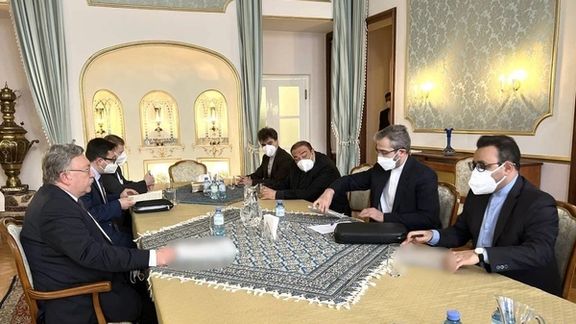
Russian chief negotiator in Iran nuclear talks, Mikhail Ulyanov, says the “Western partners” still refrain from announcing the "death" of negotiations to revive the JCPOA.
Ulyanov said on Monday that the talks to restore the nuclear deal with the Islamic Republic remains at an impasse, noting that chances of completing the negotiation process are very small.
The volte-face comes despite Ulyanov usual optimism, as the only voice who kept vouching for the success of Vienna talks with tweets about the prospect of restoring the Joint Comprehensive Plan of Action (JCPOA) or the Iranian nuclear program.
“Formally, a draft package solution remains on the negotiating table, providing for a phased return of Iran to the fulfillment of its obligations under the JCPOA and the lifting of illegitimate US extraterritorial sanctions against the Islamic Republic of Iran,” Ulyanov said.
“This package is the result of intensive and lengthy negotiations in Vienna with the participation of Russia, Iran, China, the Eurotroika, the United States and the EU Foreign Service, which acted as a coordinator,” he added.

Russia was an active player in the talks from April 2021 to February 2022, when it invaded Ukraine. The negotiations in Vienna ended in early March. The chief US negotiator Robert Malley was often meeting with Ulyanov to discuss the talks.
The last push by the EU to broker a deal in August 2022 reached a deadlock amid key disagreements between Tehran and Washington, as well as the Islamic Republic’s vague response to the IAEA about uranium traces at several sites.
Behrouz Kamalvandi, spokesman of Iran's atomic agency told a press conference on March 15 that “If there will be further questions, we will answer and talk to each other to determine how these issues can be followed up,” referring to issues related to the IAEA.
The IAEA discovered three undeclared locations in 2019 with traces of uranium. The locations dated back to before 2003 when Iran had a secret nuclear program. The UN nuclear watchdog has been demanding satisfactory answers about the three sites but it says that so far Tehran’s explanations have not been technically credible.
Tehran is now seeking to restore the nuclear agreement to see the sanctions lifted, but US officials have repeatedly said their focus is not on the revival of the JCPOA at the moment. Meanwhile, the IAEA confirmed earlier this year that its inspectors had found particles of enriched uranium with a purity of 83.7 percent at Fordow enrichment facility near Tehran.
However, following a visit to Tehran earlier this month, IAEA chief Rafael Grossi said Iran is ready to cooperate on the three locations and agreed to re-install additional monitoring equipment such as cameras at nuclear sites.
Grossi stressed that agreements still need to be discussed and he cannot yet guarantee the success of his negotiations with Tehran. After more than three weeks there have been no meetings to resolve issues, despite Grossi’s earlier promises in March that there would be “meetings soon.”